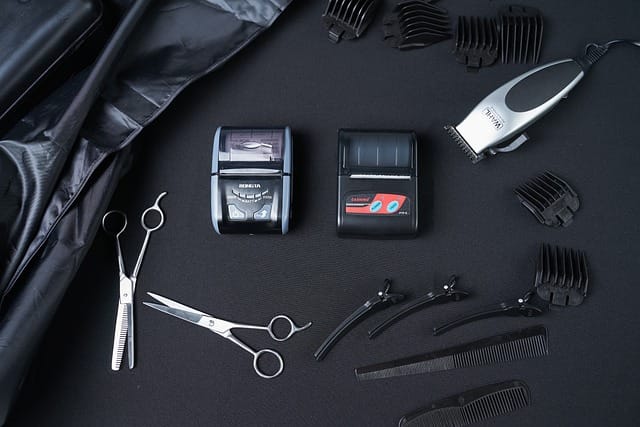Chapter 7 And Chapter 13 Bankruptcy Alternatives

You can become really afraid of the IRS due to facing their repossession of valuables.Put your finances in order and come up with a plan that may involve filing for bankruptcy if this is your only option to get out of debt. Continue reading for some useful tips that will ease you through this potentially stressful process.
You can find services like consumer credit counselling services. Bankruptcy stays on your credit for a whole decade, so before you take such a large step, you might want to explore all other choices so that your credit history is affected as minimally as possible.
If a personal recommendation comes your way, get a word-of-mouth referral for a lawyer. There are plenty of companies who know how to take advantage of people who seem desperate, so you must ascertain that your attorney can be trusted.
Most people that file for bankruptcy owe a lot of money that they could not pay off. If this is the case for you, you should begin to investigate the legislation in your state. Bankruptcy rules vary by jurisdiction. Your home is safe in some states, but in others it’s not. Be aware of bankruptcy laws before filing your claim.
Filing a bankruptcy petition might facilitate the return of your property, like your car, electronics or other items that may have been repossessed. You may be able to recover repossessed property if they have been taken away from you within 90 days before you filed for bankruptcy. Speak to a lawyer that will provide you file the entire thing.
Learn all the latest laws prior to deciding to file for bankruptcy. Bankruptcy laws are always changing, and therefore you must understand how such changes may affect your situation. Your state’s website should have the information about these changes.
Before you decide to declare bankruptcy, ensure that all other options have been considered. For example, if you only have a little bit of debt, try a type of consumer counseling program.You may also find success in negotiating lower payment arrangements yourself, but be sure to get any debt agreements in writing.
Be certain you are making the right choice before you file for bankruptcy. Alternatives do exist, including consumer credit counseling. Your credit record will be harmed by a bankruptcy filing, and therefore prior to making such a decision, it is wise to investigate other options in order to minimize the damage you suffer.
That stress can lead to depression, if you do not take the necessary steps to fight it. Life is going to get better once you get this situation over with.
In order for this to succeed, you must have bought your car in excess of 910 days before filing, you need a solid work history and the car should have been bought 910 days or more prior to you filing.
Know the rights when filing for bankruptcy. Some debtors will try to tell you your debts can’t be bankrupted. There are a few debts that cannot be cleared, such as student loans and child support, that can’t be bankrupted. If a collector tries to convince you that some other type of debt, in fact, is non-discharagable, get the company’s information and send a report to your state attorney general’s office.
Try going to a personally recommended bankruptcy lawyer instead of using a phone book or the Internet. Although you may find a good lawyer through an advertisement, you can simply find a much better lawyer if the lawyer is recommended to you by someone who has gone through the process and who has the inside track on the lawyer’s true capabilities.
It is possible for those going through the bankruptcy process to feel unworthy, remorse and embarrassment.These feelings can cause you and cause psychological problems.
This is fraud, and even after bankruptcy you can be forced to pay all of that money back to the credit card company.
Be careful on how you are planning to pay off any of your debts before you file a personal bankruptcy. You might be legally unable to file for bankruptcy if you were still paying your creditors ninety days ago, and a year for family members. Read the rules before you make any decisions about your finances.
Before filing bankruptcy consider every available avenue. Perhaps just consolidating some of your existing debt, could make them easier to manage. Going through a bankruptcy is a long and stressful process. The future of your credit will be greatly affected. Needless to say, if some alternative strategy will allow you to take care of your debts, you should give it a try before resorting to bankruptcy.
Just because you have filed for bankruptcy will not necessarily mean you must lose everything you own. Personal property are something that you can keep. You may keep personal items like jewelry, household furnishings, your jewelery and your primary vehicle for instance. This will depend on your state’s laws, your finances, and your financial situation, but you may be able to retain large assets like your home and car.
Even if your personal and financial situation is quite horrifying, do not lie about anything when you file for bankruptcy. Lying concerning your obligations and assets is perhaps the most significant error you out of this situation. You can end up in prison for a while if you don’t properly record your assets and debts.
While personal bankruptcy is a valid option, you should consider the other options available to you before making your final decision. Keep in mind that a number of debt consolidation services aren’t legit, and will only worsen your debt. The tips you have found here can help you to make the choices that are right for you, and help you steer clear of debt in the future.
If your income exceeds your obligations, you should not seek bankruptcy protection. You should know that filing for bankruptcy will ruin your credit score for at least ten years and that improving your credit score will be expensive.


